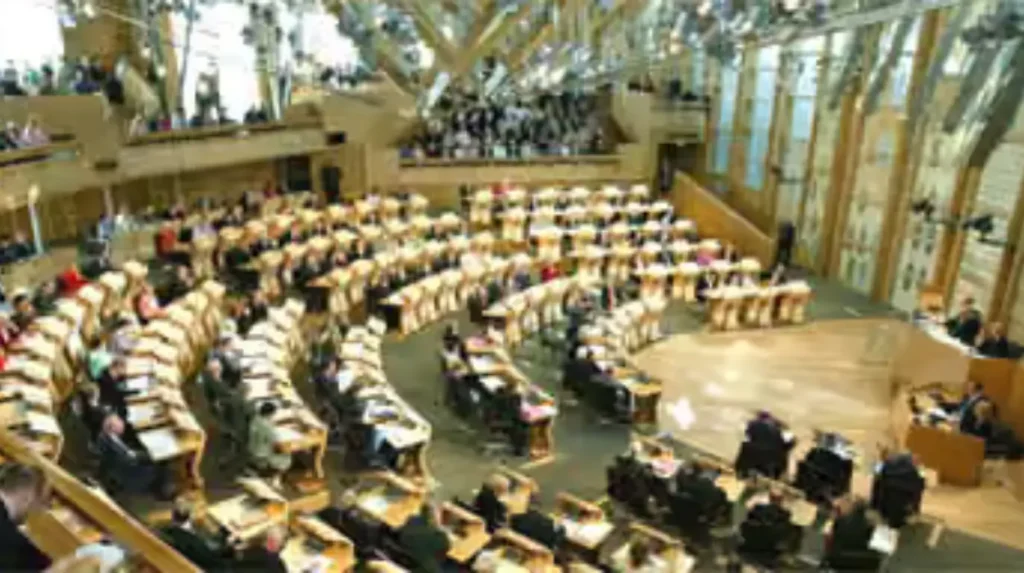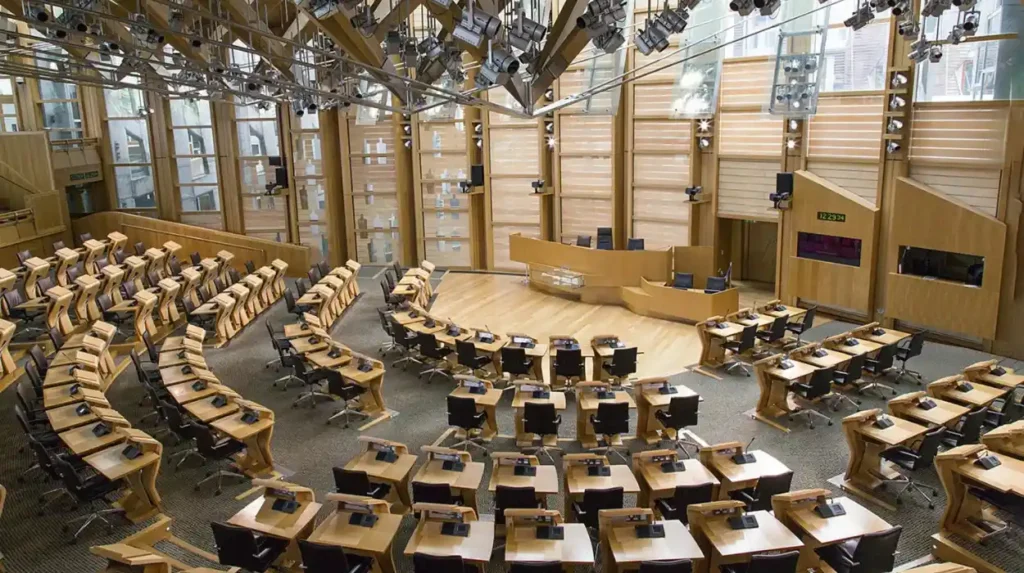One of the most controversial issues in modern British politics is the link between the Scottish Parliament and the central government of the United Kingdom. Devolution, which started in 1999, has granted Scotland the authority to create its own legislation. Westminster is still the ultimate authority. This raises questions regarding the status of the central government overruling decisions of the Scottish Parliament. Resolving this issue will need an examination of the Scotland Act 1998, the boundaries of devolved powers, and the legal concept of parliamentary sovereignty.
The Basis of Devolution
The Scotland Act 1998 created a Scottish Parliament that can make its own laws, particularly in devolved matters such as health, education, and transport. This represents significant constitutional change, but it does not give the Scottish Parliament independence. The Act establishes the UK Parliament, at Westminster, as the supreme lawmaker, which can legislate for Scotland at any time.

Reserved and Devolved Matters
The devolved matters allow the Scottish Parliament to pass its own laws. The reserved matters are kept under the control of Westminster. Reserved matters are matters such as defense, foreign policy, immigration, and monetary policy. This distinction is important because it clarifies the limits of a Scottish legal authority and that if the Scottish Parliament passes a law that impinges upon reserved powers, Westminster has the ability to intervene or block that law.
Section 28(7) – Scotland Act
A significant provision in the Scotland Act is Section 28(7). This outline draws attention to the fact that powers granted to the Scottish Parliament are not “in the absence of legislation from Westminster” to make laws in Scotland. In effect, while Holyrood can make laws, they can be lawfully superseded by the central government. In short, the legislature has a substantial amount of authority, but it is certainly not all-powerful.
Sewel Convention
There are also political conventions. There are rules and conventions that help to mediate the relationship. The Sewel Convention states that Westminster “does not normally act” without Holyrood consent in matters that are devolved. There is no legal statute on the Sewel Convention, and in 2017 the UK Supreme Court made this clear, stating it is merely a “political commitment.” This means that Westminster has legislated in a devolved area despite opposition from Scotland, indicating that Westminster can supersede Holyrood’s position.
Examples of Central Government Override
There are several real examples of how Westminster has exerted its overriding authority.
- Brexit: Scotland voted to remain in the EU, but Westminster acted to legislate its withdrawal from the EU regardless of opposition from Holyrood.
- UK Internal Market Act 2020: Limited the Scottish Parliament’s authority to create its own trade laws or make decisions, canceling devolved powers.
- 2022 ruling on referendum law: The UK Supreme Court held that the Scottish Parliament had no authority to legislate for a referendum on independence without some authorization from Westminster.
- Minimum Unit Pricing for Alcohol (initial court challenge): In the end, a minimum unit price policy for alcohol survived a court challenge only after considerable political consideration by the UK central government. Clearly a policy could be overridden, and the possibility of override.
These examples show the acts of the Scottish Parliament’s legality (in this instance, obviously framed within devolved powers); the central government can still intervene and use its right to override Scottish will.
Reserved Powers vs Devolved Powers
A key element of the devolution settlement is the separation of reserved and devolved powers.
- Devolved powers: health, education, justice, local government, environment, and transport.
- Reserved powers: defense, immigration, foreign affairs, constitution, and currency.
If a Scottish Parliament decision is within a category of reserved power, then Westminster can block it or override it. The neatness of this distinction means that not only is the extent of Scottish power defined, but also that the UK government can work/change things if an issue is continuing and extends beyond devolved powers.

UK Supreme Court as Final Arbiter
An issue arises between the Scottish and UK governments; the UK Supreme Court is the HM Courts final legal arbiter. For instance, in 2022, the Court determined that the Scottish Parliament was unable to organize a referendum on independence without the permission of Westminster. This ruling emphasized that Holyrood could not independently make decisions on constitutional issues. So, the court validated the central government in restricting or overriding Scottish actions when they went beyond devolved authority.
Brexit and its tensions with Devolution
Brexit is an example of a central government overriding the other way. In 2016, Scotland voted to remain in the EU, yet the UK government carried out the exit anyway. There were numerous powers normally in devolved responsibility, such as agriculture and fisheries, that were obtained from the EU, but then Westminster passed the UK Internal Market Act 2020 to restrict Scotland’s ability to depart from UK-wide standards. This demonstrated in practice that the central government can legislate on devolved matters when Scotland opposes the act in Holyrood.
Political vs Legal Power
Although Westminster has the legal power to legally override Scotland because it is still sovereign, to rely continually on it assumes a level of political risk for Westminster. Continually overruling decisions made by Scotland could deepen resentment of Westminster generally and develop support for independence for Scotland – should they continue down that road. Therefore, (practically), the central government employs political caution when executing its legal sovereignty over Scotland. When the central government viewed it as critical or important, then it would override Scots decisions, and if it could compromise, then it did.

The Limits of Holyrood’s Powers
Beyond stressing how this autonomy is given, we should also stress that Holyrood did not have unfettered autonomy. Holyrood could only legislate material that the UK Parliament assigned under the Scotland Act. Anything it manages to deliver beyond those limits is subject to being quashed or blocked. This legal position is based upon the legal reality that ultimately the UK Parliament retains that absolute authority over Scotland. There are actors in this space, which suggests the devolution settlement works effectively as long as the daily politics within Scotland are delegated to devolved, democratically accountable processes.
Can Westminster Repeal Devolution?
Hypothetically, because of ‘parliamentary sovereignty,’ Westminster could repeal the Scotland Act, as they have legal authority to do so, and close the Scottish Parliament or any Scottish Parliament Assembly.
However, such a severe override would be politically fraught and practically unlikely. Still, the very possibility demonstrates the extent of central government power over Scotland. Devolution exists because Westminster lets it rather than being constitutionally entrenched.
Why Overrides Matter Today
The issue of overrides is potentially much more relevant because of events such as Brexit, ongoing debates about independence, and differing approaches to policies between Holyrood and Westminster. Each time Westminster legislates against Scotland’s wishes, this helps to draw attention to the limitations of devolution. This feeds political narratives about assessing whether Scotland is better as part of the UK or as an independent state to enact true legislative sovereignty.

